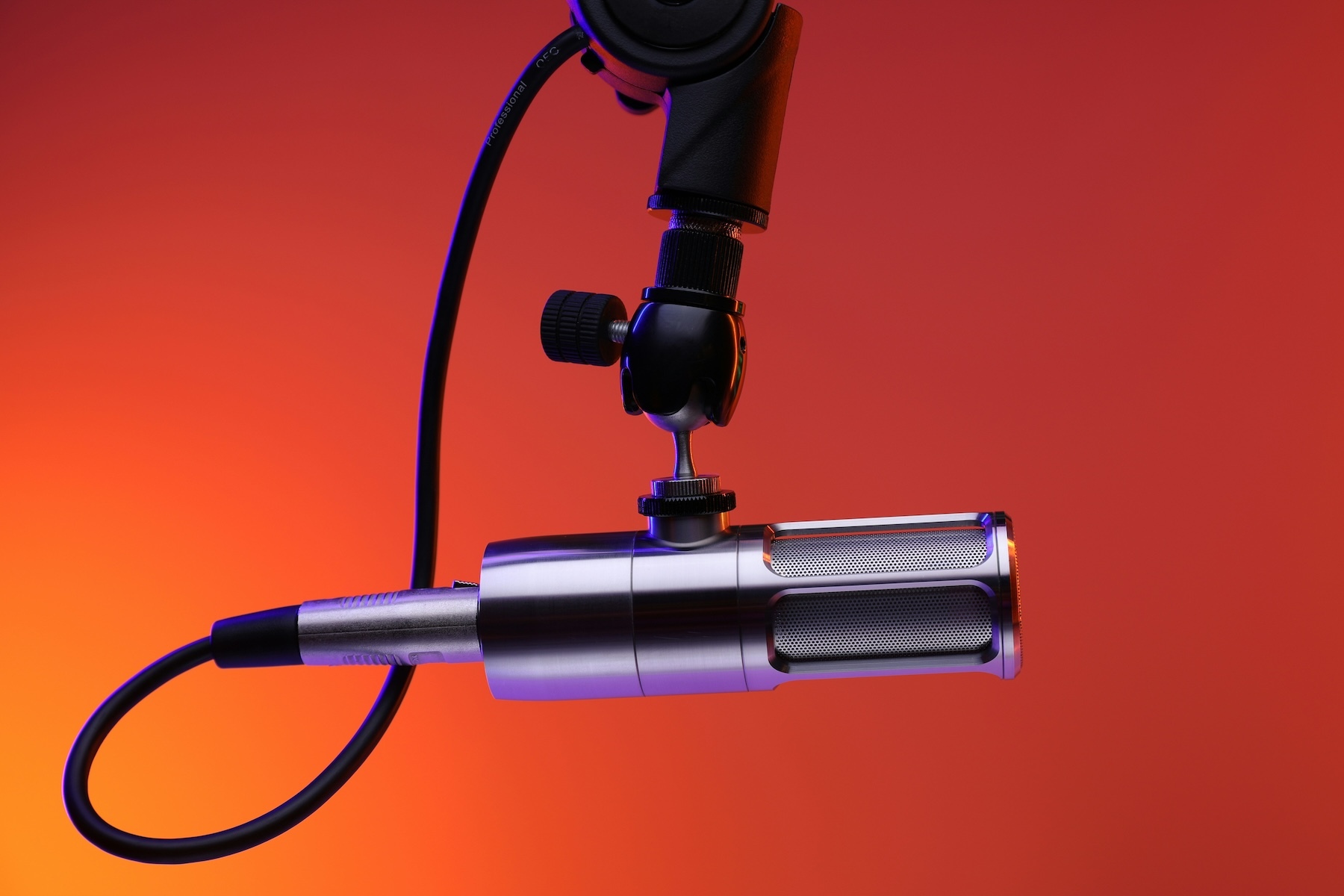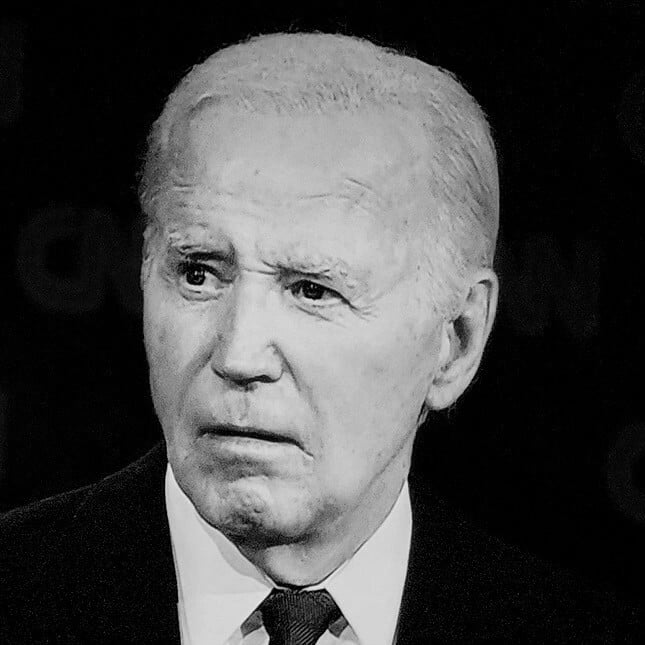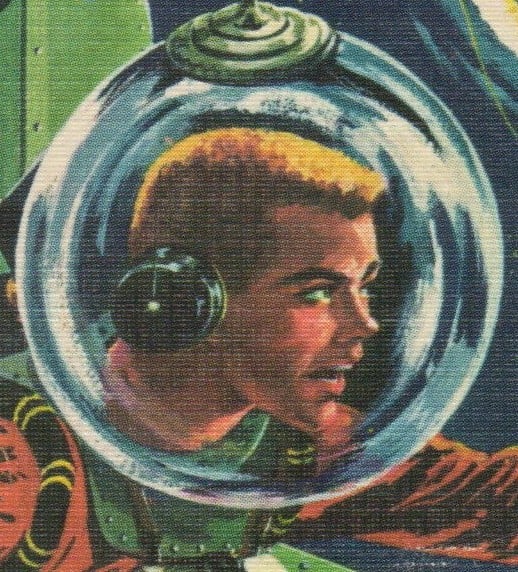[…] being able to say, “wherever you get your podcasts” is a radical statement. Because what it represents is the triumph of exactly the kind of technology that’s supposed to be impossible: open, empowering tech that’s not owned by any one company, that can’t be controlled by any one company, and that allows people to have ownership over their work and their relationship with their audience.
What podcasting holds in the promise of its open format is the proof that an open web can still thrive and be relevant, that it can inspire new systems that are similarly open to take root and grow.
If those Joe Rogan fans could read, they would be very upset right now!
EDIT: Oh you know what? I just fact-checked myself and apparently that podcast is no longer Spotify-exclusive as of very recently. I hope you enjoyed the joke anyway.
deleted by creator
Yeah, it’s much better for everyone except the rent-seeking company… And it isn’t even bad for the rent-seeker, they’re just deprived of the gains they would obtain from harming the ecosystem by fragmenting it.
They’re paying him $250M starting this year. I think it’s about to be exclusive to Spotify again.
Could someone explain to me (I’m a developer so use whatever terms you like, maybe), how does the massive amount of podcasts reach the world? Say if I wanted to make a podcast app (I don’t, I love Pocket Casts), where would I sync the massive list’o’casts? Does it work like that? Or do you scrape the entire internet? What is happening?
It’s done via RSS feeds that the podcast creators then submit to aggregators. Then apps pull that information down from said aggregators. This website explains the gist of it.
https://rss.com/blog/how-to-create-an-rss-feed-for-a-podcast/
So how do the aggregators sync with each other to get all the podcasts? Or is it up to the podcast to “post” to all the aggregators?
The aggregators don’t sync with each other. The podcast creators upload the new show to each aggregator (or use an app that uploads to multiple).
Okay cool, that I think explains everything I’ve wondered about this topic lol. Awesome, thank you!
And they don’t even have to go through an aggregator, it’s just for ease of use and discovery, pretty much every app will let you put in an rss feed url, so podcast could be self hosted only reliant on having an internet connection… well, hell…. Only reliant on having a shared network connection with your target audience
The one paid podcast I pay for does this.
You pay on their site and then you get a personal RSS URL to put in your catcher.
The protocol used for it is a bit of an older protocol, but basically it uses the RSS protocol. It came out in the 90s and hasn’t been updated since 2014, and I haven’t touched any code related to it since before 2019. Otherwise, it’d just be standard HTTPS for websites like Spotify etc and whatever podcast discovery system they have on their site etc.
Does the protocol have its own name?
iTunes api, and if apple turns evil there are other list-o-cast apis like fyyd.de.
iTunes api, and if apple turns evil there are other list-o-cast apis like fyyd.de.
Whoever downvoted this has no clue. The Apple Podcast directory is currently unrestricted for any podcatcher to crawl and to get the RSS feeds. That may change at some point but for now it’s actually the best maintained RSS feed directory. The aforementioned fyyd.de is a good but less complete alternative. It relies of community submissions. fyyd.de itself is not an open source service, though.
if apple turns evil
Lolol yeah like that could EVER happen! /s
Compared to Reddit or Twitter anyway, they haven’t killed their API yet so apps like pocket casts are mainly using iTunes for search
Ah-ha. Interesting. Thanks!
Are you sure about this? I was under the impression there were several aggregators out there who all sort of shared data, iTunes just being one of them. Maybe you are totally right, but if you are that sort of undermines the original post, which is saying that the podcast ecosystem doesn’t depend on any one company/org.
Apple has been evil since day 1. When have they done any single thing that wasn’t evil? The EO is family a terrible, wireless person. I’m so confused what you mean.
rss
🤡
When people push listening on Spotify even though the podcast is available everywhere else I roll my eyes.
One of my main motivations for cancelling my Spotify subscription was their insistence on capitalising on podcasts. They have a perfectly fine business model with music, why do they need to ruin podcasts?
Yeah the locking down podcasts for exclusivity to me is really fucking toxic and totally counter to what podcasts used to stand for. Really pissed me off when Gimlet went Spotify only and Reply All was no longer available elsewhere. Very anti consumer.
I thought of starting Spotify subscription but they keep recommending songs by artists that I have blocked. Fix your shit, Spotify.
I didn’t cancel because I think the rest of the service is fantastic, but I haven’t touched the podcasts. Because of the politics.
I left when they paid Joe Rogan money
Whenever I’m talking with someone about my podcast and they ask, “can I find it on Spotify?” a little part of me dies.
Like, yes it’s available on Spotify, because it’s available everywhere. But I strongly dislike what Spotify tried to do to podcasting, and there are much better apps out there.
I use spotify daily like most people these days. I’m not married to it, but it is easy to use (most of the time) and has the best selection of everything (for the most part). What app is a better use of my time for music and podcasts?
I like using AntennaPod for podcasts and Spotify for music.
If you like feature rich apps then I recommend Podcast Addict.
Is it available for iOS? The native podcast app is unbelievably confusing.
Well plenty creators push product X, Y or Z. Whether that product is in itself also the hoster of the media you’re listening to… I dunno. Just another ad to me, I don’t really care about the details any more at that point. Sadly no sponsorblock for podcasts yet, AFAIK.
Hey, I get that. Honestly I do not even think they push Spotify because they’re paid to do it. The ones I’m listening to, that is. They do it because they like the service and that’s fine. It’s just sad to feel like an afterthought. The adverts I’m fine with. I can just skip them.
deleted by creator
…exactly the kind of technology that’s supposed to be impossible: open, empowering tech that’s not owned by any one company, that can’t be controlled by any one company…
Who is suggesting that such technology is impossible? The internet is literally exactly this, based on an open standard (Internet Protocol) which is not controlled by any proprietary group.
IP wasn’t the first computer networking standard to be developed, but its open nature made it accessible to any interested manufacturers and that made it the most successful standard.
Anyone suggesting that this “kind of technology” is “supposed to be impossible” is either ignorant or stupid, or both.
If IP was developed today, you’d be paying IBM or a similar corp royalties for every network adapter manufactured. Thats whats supposed to be impossible in today’s late-stage hyper-capitalism web.
IBM tried that in the 60s, 70s and 80s with their business mainframe systems, along with HP and several other manufacturers. Before IP gained prominence every major manufacturer had its own proprietary connection system they tried to sell, and the competition in the market was just as fierce then as it is now.
It didn’t work, the open model made all of the proprietary network systems obsolete.
I’m also not sure I can agree with that it’s “a radical statement”. It is… not? Unless I misunderstand what others mean with
radicalin this context, but linguistically it should the form free of pre- and suffixes and qualifiers, no?So in this context, “wherever you get your podcasts” is… not very radical. That’d be not actually stating anything in regards to your podcasting platform, as it is in itself a qualifier for something else in that sentence, and hence removed.
It’s also not radical in the political sense of course, but I kinda figured that’s not what is being alluded to here anyways as it’d inherently not make any sense.
I think what the author meant was that it’s impossible in the capitalist marketplace.
Joe Rogan is probably a good anti-example. His podcast (as I understand it anyway) is only available on Spotify. But Conan O’Brien, the Office Ladies, and even The West Wing Weekly (which hasn’t been producing in years) is still available, for free, on any podcast platform.
I think what the author meant was that it’s impossible in the capitalist marketplace.
Nonsense, the marketplace was also capitalist when the internet protocol was developed in 1974. It wasn’t that long ago.
Also, I’ll point out that open source software is very successful today and there are a lot of businesses based around open systems. Linux is the most widely used OS, particularly for embedded devices. Apache is the most widely used web server. You’re using an open source platform right now. You probably interact with open source systems every day, you’re surrounded by them, and they were developed in and thrive in the ‘capitalist marketplace’.
JRE apparently no longer is Spotify exclusive either
Who is suggesting that such technology is impossible?
Every business that could stand to make a buck from it being that way. But the author obviously meant in the current economic model we live under.
the current economic model we live under.
The internet isn’t exactly ancient technology. Do you think the ‘current economic model’ is significantly different from the 1970s? (and can you back up that conclusion?)
I don’t follow what you’re saying. The economic model we’re in has been around for hundreds, arguably thousands of years in most ways. What about it?
The author was assuming people would know that “impossible” doesn’t always need to be literal. Things are more often impossible because of established norms. That’s all.
The norms we are discussing here is that under capitalism, the norm tends to be trending away from free and open systems. Because where there is a buck to be made, there’s usually someone doing everything they can to make that buck and prevent the openness that would render them useless.
The economic model we’re in has been around for hundreds, arguably thousands of years in most ways. What about it?
And open source came into being inside of that model, and has grown and thrived since. So obviously, it’s not impossible.
The norms we are discussing here is that under capitalism, the norm tends to be trending away from free and open systems.
Right, this isn’t true. While certainly there are some businesses that try to restrict it, open systems grow and spread anyway. Open source is bigger and stronger than ever today. Open source software is so widespread that it’s a security concern for governments (look at the log4j fiasco). You interact with open platforms every day, even if you don’t see their names in commercials or on billboards (many of them don’t have to advertise).
I think you’re just being argumentative honestly. I don’t disagree with anything you’ve said really, I just take issue with the intentional reading of “possible” as “technically possible”.
Yeah OSS and a lot of open systems are huge and great. They will continue to grow. But as we both know, business will continue to be intentionally shitty. Exhibit A: world’s first trillion dollar company, Apple, thrives mostly due to the proprietary ecosystem they’ve put in place. It’s a “winning” strategy, as much as I loathe it.
We’re not disagreeing on anything but wording here.
OK, but I’m not arguing for the sake of argument. What I take issue with is the overly negative point of view that isn’t justified by the reality of the current technology market. It’s limited, depressive and ultimately self-destructive.
Perspective matters. Money isn’t the only measure of success. Internet infrastructure is basically Linux, nginx and Apache - seriously, apart from user endpoints it’s pretty much all open source - and the most common endpoint OS is Android so also open source. The idea that open systems aren’t as successful as proprietary ones doesn’t reflect reality, it’s a projection of a limited point of view onto reality (it only seems true if large portions of the current technology market are ignored).
I get where you are coming from now. Thanks for elaborating.
I can see where you’d get that it’s an overly negative point of view, but I’ll be damned if companies like Apple don’t give me so many reasons to think that way :(
I always thought it was a jab at Spotify being all-powerful. Anytime you hear a commercial for a podcast, they always mention Apple Podcasts first, then maybe Stitcher gets a name-drop, but they NEVER say to listen to the podcast on spotify.
Stitcher actually got shut down last August after the SiriusXM acquisition.
They’re not really mentioning stitcher any more
You can tell how frequently I listen to podcasts lol used to a lot but I guess I’ve scaled back a little in the last year
upvote this wherever you get your federated content.
It’s no more radical than saying… “wherever you get your gasoline.” It’s just a thing to say because theres more than one source, and there being more than one source is not radical.
No?
There’s only a handful of places you can get gasoline? It’s almost entirely controlled by a few companies who control the majority of the pipeline.
You can’t buy directly from the people making the oil.
A better example for the point you’re trying to make is “whenever you get your apples”.
It’s just a thing to say because theres more than one source, and there being more than one source is not radical.
The closest thing to podcasts is probably TV. You can’t say “available wherever you stream television” because everything is exclusive to a different service. You can’t even say “available wherever audiobooks are sold” for similar reasons. EPIC is trying to make the same thing true for video games as much as they can as well.
It is worth pointing out that entertainment does not have to be (and should not be) exclusive to a singular middleman.
Nothing radical about that. For 90% of people “Wherever you get your podcasts” means Apple, Spotify or YouTube. It has nothing to do with the win of freedom, it has to do with saving time to the speaker and listener. Same as with gas, as the other guy said.
Apple, Spotify or YouTube
Or. Instead of “only on Netflix” and “only on Amazon Prime” and “only in Disney+”.
deleted by creator
Email newsletters kinda are too. You use a service to send them, but the list itself remains yours and can be moved around. No algorithm bullshit in your way. They’re making a comeback lately it seems.
It’s only radical if it is not preceeded by “Apple podcasts, Spotify,…”
I have no idea where I get my podcasts; I hit Add Podcast in AntennaPod, it goes somewhere and I get a podcast subscription somehow. Can’t explain that.
Easy to do when it’s just audio files with no user interaction though. Neat that it’s continued existence in this manner at least, even if the big companies have steered toward trying to be the podcast platform.
All the centralisation in podcasting is the content delivery network (where ads are placed for the commercial ones). Where the feed is hosted it’s fairly irrelevant.
The reason companies want to control the podcast networks is because of targeted ads. They want to inject the ad at the time of downloading to personalize the ad to the person it thinks is listening. That’s the best kind of advertising in their eyes. They can’t do that process without owning the network or at least having some stake in it.
deleted by creator
The problem with Nebula is that it is a paywall, something that is considered to be the most evil by some on Lemmy.
At the end of the day, content is paid for by getting everyone to pay, asking some to pay, advertising, or the creator is willing to do it for free as a hobby.
Nebula is a creator run coop, I believe. I’m happy to pay for that, and do.
Did anyone listen to Adam Curry’s Daily Source Code podcast? I remember him being very excited about the possibility of escaping the gatekeepers of traditional media. If i remember correctly, he was a major and important proponent of the open nature of podcasts.
Podcast Addict and Podcast Republic ftw!
If only we didn’t have gigantic centralized podcast hosts like Libsyn that also platform Neo-Nazis…

















